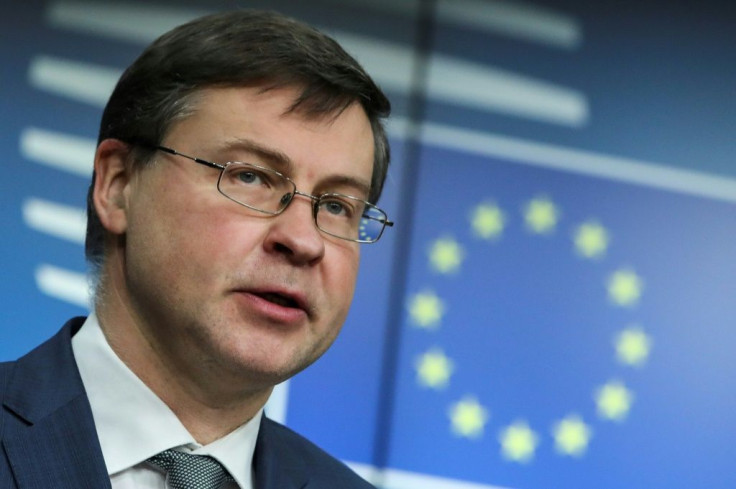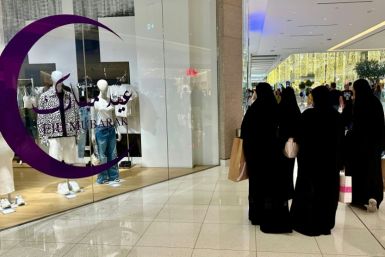EU Efforts To Ratify China Investment Deal On Ice After Sanctions
The European Commission said Tuesday that efforts to win approval for the EU's massive investment deal with China were effectively "suspended" given the soured diplomatic relations between both sides after tit-for-tat sanctions.
"We now in a sense have suspended... political outreach activities from the European Commission side," EU Executive Vice President Valdis Dombrovskis told AFP in an interview.
"It's clear in the current situation with the EU sanctions in place against China and Chinese counter sanctions in place, including against members of European Parliament (that) the environment is not conducive for ratification of the agreement," Dombrovskis said.
Trying to ratify the deal "will depend really on how broader EU-China relations will evolve", he added.

To the surprise of many, the European Union and China in late December approved a major investment pact, wrapping up seven years of painstaking negotiations thanks to a final push by Germany.
The pact has been defended as a much needed opening to China's long-closed economy for European companies, but was sure to face a difficult ratification amongst the 27 member states as well as the European Parliament.
Dombrovskis, a former Latvian prime minister, is in charge of spearheading that approval process in the EU, which has already met with pushback from key MEPs.
The European Union sanctioned four Chinese officials in March over suspected human rights violations in China's far western region of Xinjiang.
China responded by imposing its own sanctions against European politicians, scholars and research groups.






